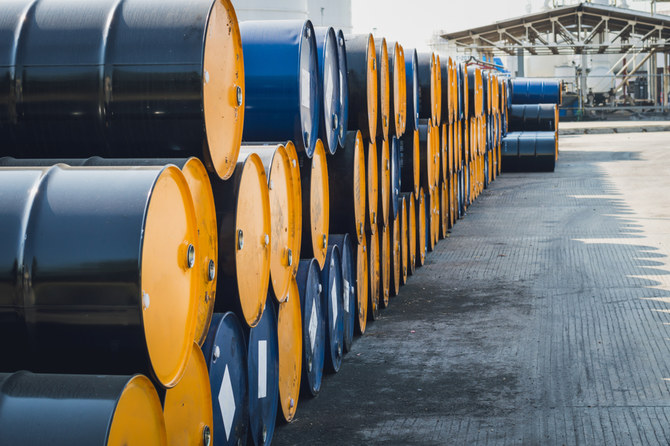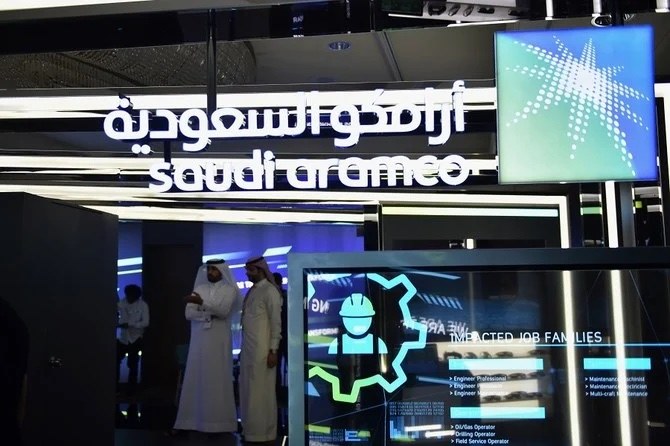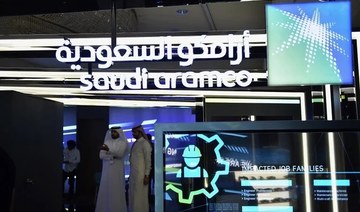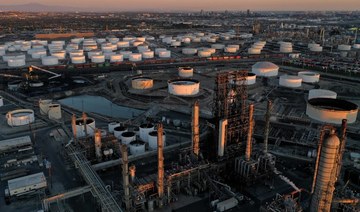NEW YORK: In a sweeping rejection of Apple Inc.’s strategy for selling electronic books on the Internet, a federal judge ruled that the company conspired with five major publishers to raise the retail prices of e-books.
US District Judge Denize Cote in Manhattan found “compelling evidence” that Apple violated federal antitrust law by playing a “central role” in a conspiracy with the publishers to eliminate retail price competition and raise e-book prices.
The decision could expose Apple to substantial damages. It is a victory for the US Department of Justice and the 33 US states and territories that brought the civil antitrust case.
Apple was accused of pursuing the conspiracy to undercut online retailer Amazon.com Inc’s e-book dominance, causing some prices to rise to $12.99 or $14.99 from the $9.99 that Amazon charged. Amazon once held a 90 percent market share.
“Apple chose to join forces with the publisher defendants to raise e-book prices and equipped them with the means to do so,” Cote said in a 159-page decision. “Without Apple’s orchestration of this conspiracy, it would not have succeeded as it did.”
Wednesday’s decision was not a total surprise, given that Cote indicated before the 2-1/2 week non-jury trial began on June 3 that Apple’s defenses might fail. Cote ordered a trial to set damages.
“This result is a victory for millions of consumers who choose to read books electronically,” Bill Baer, head of the Justice Department’s antitrust division, said in a statement. “This decision by the court is a critical step in undoing the harm caused by Apple’s illegal actions.”
APPLE PLANS TO APPEAL
In a statement, Apple maintained that the plaintiffs’ allegations are false and said it will appeal Cote’s decision.
“Apple did not conspire to fix e-book pricing,” Apple spokesman Tom Neumayr said. “When we introduced the iBookstore in 2010, we gave customers more choice, injecting much needed innovation and competition into the market, breaking Amazon’s monopoliztic grip on the publishing industry. We’ve done nothing wrong.”
Last year, Apple settled a separate antitrust case over e-book pricing with the European Commission, without admitting wrongdoing.
The alleged collusion began in late 2009 and continued into early 2010, in connection with the Silicon Valley giant’s launch of its popular iPad tablet.
Only Apple went to trial, while the publishers agreed to pay more than $166 million combined to benefit consumers.
The publishers included Lagardere SCA’s Hachette Book Group Inc, News Corp’s HarperCollins Publishers LLC, Pearson Plc’s Penguin Group (USA) Inc, CBS Corp’s Simon & Schuster Inc. and Verlagsgruppe Georg von Holtzbrinck GmbH’s Macmillan.
Baer said Cote’s decision, together with the publishers’ settlements, have helped consumers by reducing prices of e-books.
In morning trading, Apple shares were down 30 cents at $422.05 on the Nasdaq.
Steve Berman, a partner at Hagens Berman Sobol Shapiro pursuing consumer class-action litigation against Apple, called Cote’s decision “a very big deal.”
“It exposes Apple to hundreds of millions of dollars in damages, which is what we’ll ask for,” Berman said.
STEVE JOBS
Amazon’s strategy involved buying e-books at wholesale and then selling them at below cost, in an effort to promote its Kindle reading device.
Apple, in contrast, entered into so-called “agency agreements” in which publishers were able to set higher prices and pay commissions to the Cupertino, California-based company.
The federal government said this arrangement pushed Amazon into a similar model, and resulted in prices of e-books from the five publishers increasing by 18 percent.
Evidence in the case included e-mails from Apple’s late co-founder Steve Jobs to News Corp. executive James Murdoch that the government said reflected Jobs’ desire to boost prices and “create a real mainstream e-books market at $12.99 and $14.99.”
Such evidence hurt Apple’s case, Cote said. “Apple’s efforts to explain away Jobs’s remarks have been futile,” she said.
Apple had argued that it never conspired with the publishers to raise e-book prices, or even understood that publishers might have been talking among themselves about higher prices in advance of the iPad launch.
“There is no such thing as a conspiracy by telepathy,” Apple’s lawyer Orin Snyder said in closing arguments on June 20.
Cote also rejected Apple’s argument that it would be unfair to single out the company when Amazon and Google Inc, among others, entered similar agency agreements with publishers.
The decision allows the plaintiffs to seek injunctive relief to prevent further pricing conspiracies.
At trial, the Justice Department said it wanted to block Apple from using the agency business model for two years.
The department also said it wants to stop Apple over a five-year period from entering contracts that insure it will offer the lowest retail prices.
The case is US v. Apple Inc. et al, US District Court, Southern District of New York, No. 12-02826.
Judge rules Apple conspired to raise prices on e-books
Judge rules Apple conspired to raise prices on e-books

Oil Updates – prices climb after Israel strikes Gaza, truce talks continue

SINGAPORE: Oil prices edged higher on Tuesday after Israel struck Rafah in Gaza, while negotiations for a ceasefire with Hamas continued without resolution, according to Reuters.
Brent crude futures were up 9 cents, or 0.11 percent, at $83.42 per barrel at 9:35 a.m. Saudi time, while US West Texas Intermediate crude futures rose 7 cents, or 0.09 percent, to $78.55 a barrel.
“Oil prices opened up this morning, with some roadblocks in the ceasefire talks between Israel and Hamas leading market participants to price for geopolitical tensions to potentially drag for longer,” said Yeap Jun Rong, market strategist at IG.
Market participants will be looking ahead to upcoming US crude inventories data releases, Yeap added.
US crude oil and product stockpiles were expected to have fallen last week, a preliminary Reuters poll showed on Monday. The crude inventories could have on average fallen by about 1.2 million barrels in the week to May 3, based on analyst forecasts.
During the session, a stronger dollar capped gains in oil futures as it makes crude more expensive for traders holding other currencies. The dollar index, which measures the greenback against six major peers, was last up at 105.25.
Oil prices had settled higher on Monday, partially reversing last week’s declines. Both contracts had posted the steepest weekly losses in three months as the market focused on weak US jobs data and the possible timing of a Federal Reserve interest rate cut.
Palestinian militant group Hamas on Monday agreed to a Gaza ceasefire proposal from mediators, but Israel said the terms did not meet its demands and pressed ahead with strikes in Rafah while planning to continue negotiations on a deal.
Israeli forces struck Rafah on Gaza’s southern edge from the air and ground and ordered residents to leave parts of the city, which has been a refuge for more than 1 million displaced Palestinians.
The absence of a settlement between the parties in the now seven-month long conflict has supported oil prices, as investors worry regional escalation of the war will disrupt Middle Eastern crude supplies.
Saudi Arabia’s move to raise the official selling prices for its crude sold to Asia, Northwest Europe and the Mediterranean in June also supported prices, signalling expectations of strong demand this summer.
The world’s top exporter hiked its flagship Arab Light crude oil price to Asia to $2.90 a barrel above the Oman/Dubai average in June, the highest since January and at the upper end of traders’ expectations in a Reuters survey.
Saudi Aramco’s net profit hits $27.27bn in Q1

RIYADH: Energy giant Saudi Aramco reported a net profit of $27.27 billion in the first three months of this year, marking a 2.04 percent increase compared to the previous quarter.
According to the company’s statement, the state-owned oil firm’s total revenue for the the three months to the end of March stood at $107.21 billion, with the total operating income for the period reaching $58.88 billion.
Amin Nasser, president and CEO of Saudi Aramco, said: “Our first quarter performance reflects the resilience and strength of Aramco, reinforcing our position as a leading supplier of energy to economies, to industries and to people worldwide.”
However, when compared with the first quarter of the previous year, the net profit of the Tadawul-listed firm declined by 14.44 percent by the end of March 2024.
Despite lower net income, Aramco declared a base dividend of $20.3 billion for the first three months of the year and anticipates distributing its fourth performance-linked dividend of $10.8 billion in the second quarter.
The statement added that the company expects total dividends of $124.3 billion to be declared in 2024, comprising a base dividend of $81.2 billion and a performance-linked dividend of $43.1 billion.
Nasser revealed that Saudi Aramco made significant progress in its gas business during the first quarter.
“We also continue to execute our long-term strategy, and in the first quarter made significant progress on expanding our gas business and growing our globally-integrated downstream value chain, while maintaining our focus on consistently delivering value for our shareholder,” he added.
In February, the energy giant discovered an additional 15 trillion standard cubic feet of gas and 2 billion barrels of condensate in the Kingdom’s Jafurah Field.
Additionally, the statement noted that Saudi Aramco awarded $7.7 billion worth of engineering, procurement, and construction contracts for the expansion of the Fadhili Gas Plant, aiming to increase its processing capacity by 1.5 billion standard cubic feet per day.
Moreover, Aramco completed the acquisition of a 100 percent equity stake in Chilean retailer Esmax in the third quarter of 2023, bolstering the company's downstream expansion efforts.
“Looking ahead, I expect our portfolio to continue to evolve as we aim to contribute to an energy transition that offers solutions to climate challenges, but at the same time recognizes the need for affordable, reliable, and flexible energy supplies,” added Nasser.
The statement further added that Saudi Aramco is well-positioned to help meet the world’s growing need for affordable and reliable energy, emphasizing that oil and gas will continue to play a significant role in the global energy mix.
Additionally, the company noted that it achieved a total hydrocarbon production of 12.4 million barrels of oil equivalent in the first quarter of this year.
Highlighting Aramco’s commitment to sustainability, the energy giant announced its intention to ramp up its utilization of renewable energy sources, aiming to invest in up to 12 gigawatts of solar photovoltaic and wind projects by 2030.
In January, the Sudair Solar PV Plant, one of the largest solar installations in the region boasting a capacity of 1.5 GW, achieved full-capacity operation. This project is a joint venture between Aramco, Saudi Arabia’s sovereign wealth fund, and utility developer ACWA Power.
PIF’s Alat unveils electrification, AI infrastructure business units

RIYADH: Alat, a flagship company of the Public Investment Fund, unveiled two business units in electrification and AI infrastructure, to establish Saudi Arabia as a premier manufacturing hub globally.
The company unveiled its plans during the Milken Institute Conference held in Los Angeles.
According to a press release, the move comes as part of the PIF company’s strategic vision to spearhead a paradigm shift in industry sustainability while propelling Saudi Arabia on the global stage.
Alat Global CEO Amit Midha said: “I am pleased to announce these two exciting new divisions as they will make a significant contribution to Alat’s overall strategic goal of developing an advanced, sustainable future for the industry.”
The electrification arm will fortify grid technology, catering to the burgeoning demand for electricity driven by exponential growth in renewable energy sources like solar, wind, and hydrogen.
By harnessing Saudi Arabia’s solar energy and other clean resources, the firm seeks to manufacture innovative solutions that will catalyze the global energy transition and drive decarbonization in industry.
The electrification unit will specifically focus on enhancing transmission and distribution technologies, facilitating the integration of renewable energy into existing grids, and pioneering advancements in gas and hydrogen generation and compression technologies.
On the other front, the AI Infrastructure business unit will address the escalating global demand for AI capabilities across industries.
This entails the development of cutting-edge technologies encompassing network and communications equipment, servers, data center networking, storage, industrial edge servers, and Industry 4.0 computing.
“The global electrification market size reached $73.64 billion in 2022 and it is expected to hit around $172.9 billion by 2032, growing at a CAGR of 8.91 percent between 2023 and 2032,” the press release added.
The global AI Infrastructure market is set to hit $460.5 billion by 2033, with a robust 28.3 percent compound annual growth rate, driven by widespread adoption across industries for innovation, decision-making enhancement, and task automation.
As a gold sponsor at the Milken Institute Conference, the firm now has nine business units focused on sustainable technology manufacturing.
“Alat will invest $100 billion by 2030 across these business units to develop key partnerships and build advanced manufacturing capabilities in Saudi Arabia to bring jobs and economic diversification to the Kingdom,” the press release said.
Saudi Arabia’s Qiddiya to build region’s largest water theme park

- Aquarabia will also feature the first underwater adventure trip with diving vehicles
RIYADH: Saudi Arabia Qiddiya Investment Co. will construct the region’s largest water theme park as a cornerstone of its Six Flags Qiddiya City venture it was announced on Monday.
To be named Aquarabia, Qiddiya hopes to draw visitors from around the globe with 22 attractions and water experiences suitable for all family members, as well as some “world-first” attractions, Saudi Press Agency reported.
These attractions include the world’s first double water loop, the tallest water coaster with the highest jump, the longest and highest water racing track, and the tallest water slide.
Aquarabia will also feature the first underwater adventure trip with diving vehicles, catering to adventure enthusiasts with water sports areas designated for rafting, kayaking, canoeing, free solo climbing, and cliff jumping.
Additionally, the park will introduce the first surfing pool in the Kingdom, incorporating immersive design elements themed around ancient desert water springs and Qiddiya’s wildlife.
With sustainability in mind, Aquarabia will implement advanced systems capable of reducing water waste by up to 90 percent and decreasing energy consumption. As part of the Six Flags Qiddiya project, the venture, the first Six Flags of its kind outside North America, aims to recycle operational waste, diverting over 80 percent from landfill.
Scheduled to open in 2025, both Aquarabia and Six Flags Qiddiya City are situated within Qiddiya City, forming a fully walkable neighborhood offering a diverse array of activities, accommodations, dining options, and relaxation spots.
Abdullah Al-Dawood, managing director of Qiddiya Investment Co., hailed the announcement as a significant milestone for Qiddiya and the entertainment, tourism, and sports sectors in the Kingdom.
He emphasized that the projects will cater to diverse entertainment needs while contributing to economic diversification and job creation in the tourism sector.
The project also aims to meet the growing local demand for immersive entertainment experiences, particularly in water activities, aligning with the goals of Saudi Arabia’s Vision 2030 to enhance local tourism and employment opportunities.
The unveiling of Aquarabia follows the announcement of several other entertainment, sports, and cultural attractions in Qiddiya, including the world’s first multi-use gaming and electronic sports area, the multi-sport Prince Mohammed bin Salman Stadium and the Dragon Ball amusement park.
Saudi Arabia ascends as key destination for global talent: BCG report

RIYADH: Saudi Arabia has emerged as a key player in attracting global talent amid ongoing geopolitical shifts and financial uncertainty, moving up two spots on the list of preferred countries for workforce mobility.
The “Decoding Global Talent 2024” report by Boston Consulting Group highlights Saudi Arabia’s rise to the 26th most preferred country, underscoring the success of the Kingdom’s strategic initiatives to position itself as a global hub for professionals.
This fourth edition of the study draws insights from over 150,000 professionals across 188 nations, tracking global talent trends since 2014.
Riyadh’s rise to the 54th rank globally underscores its emergence as a hub of opportunity and progress in the eyes of global talent.
Christopher Daniel, managing director and senior partner at BCG, said: “As the global talent shortage becomes an increasingly pressing challenge for the world's foremost economies, Saudi Arabia is emerging as a pivotal player in narrowing this gap.”
He added: “With a significant proportion of respondents citing the quality of job opportunities, the attractive income, tax, and cost of living, as well as the assurance of safety, stability, and security as key reasons for choosing the Kingdom, it’s evident that Saudi Arabia’s strategic investments in its labor market are bearing fruit.”
Daniel noted that the Kingdom is leveraging labor migration to enhance its workforce, offering a secure and hospitable environment that caters to the diverse needs of international professionals.
“By fostering a job market that is attuned to the evolving aspirations of global talent while prioritizing their well-being, Saudi Arabia is positioning itself as a compelling destination for those seeking growth and fulfillment in their careers,” he said.
Furthermore, the report highlights that younger generations and individuals from rapidly expanding populations are particularly attracted to global mobility, pursuing diverse experiences and opportunities for professional growth.
With 23 percent of global professionals actively pursuing international positions and 63 percent remaining receptive, Saudi Arabia is well-positioned to capitalize on this trend.
The Kingdom offers an enriching environment for a globally oriented workforce to excel and progress in their careers, presenting an enticing option for individuals seeking both personal and professional advancement in an ever more interconnected global landscape.














